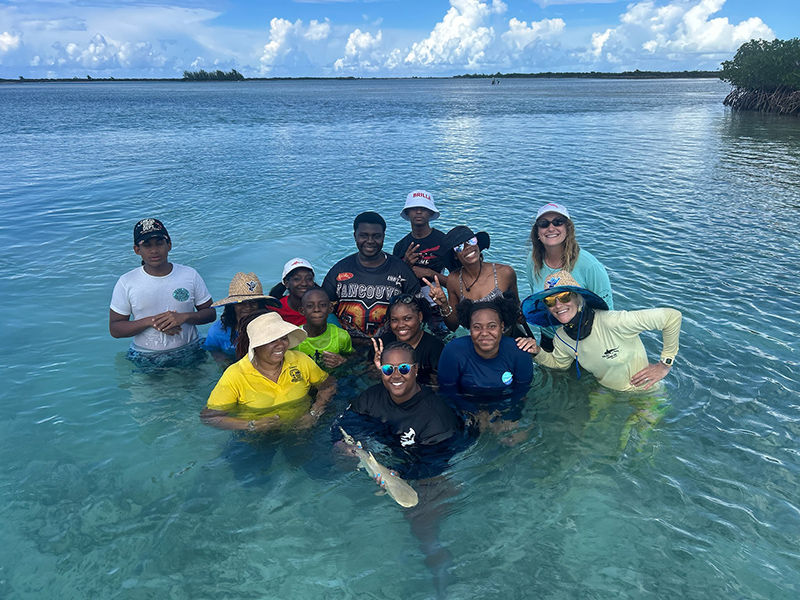Meet Sharks4Kids Ambassador Ron Watkins
- Sharks4Kids

- Jan 18, 2020
- 4 min read
We are thrilled to welcome Ron to our team! He has been doing presentations and sharing his amazing images with us.
Check out his AMAZING PHOTOGRAPHY
Thanks for sharing your story with us Ron!

1. What is your favorite shark and why?
The salmon shark (Lamna ditropis) is my favorite because I spent over three years planning and attempting to locate and photograph this beautiful and elusive shark in the waters of Alaska. It is a type of mackerel shark with the speed of a mako and has super endothermic capability to raise its body temperature 10-15 deg F which increases its food range which consists of squid, herring and of course salmon. They are also one of the coolest looking sharks and resemble a smaller great white (up to 10' long) but with subtle differences including a smaller mouth, eyes more forward and often will have a a Dalmatian pattern on their under-bell.

2. What is one shark you would like to photograph?
The basking shark (Cetorhinus maximus), which is the second largest shark (whale shark #1) and can be found in the chilly waters off of Scotland. It's a slow moving filter feeder and with that large mouth, it would great to photograph. A trip is planned to locate and photograph these sharks next year. 3. How did you get started shark diving? What was the first species you went diving with?
I have been diving for over 30 years and sure there were sharks swimming with me all that time, but one of the first significant one I saw and photographed was a silvertip (Carcharhinus albimarginatus) in the Coral Sea off of Australia in 1999. It was such a sleek looking shark and looked like someone had delicately painted a white stripe down tips of its fins. It made one pass right at me curiously and at the last minute turned gracefully in front of me as if to pose. That slide won me my first international photo contest! 4. Do you believe photos and videos are powerful for conservation?
Absolutely! We Protect what we love and we love what we know and understand. We often fear the unknown, so by presenting the beauty of sharks through photography and video, it increases awareness and demystifies sharks. I try to photograph sharks to not only demonstrate their raw power and evolutionary perfection, but as a softer and more artistic side of sharks. Look at how the great white was first portrayed in the movie Jaws and people feared what was beneath the ocean that they couldn't see. Now days, there are so many pictures of great whites out there, anyone can view and photograph them while in a cage and a select few have also been photographed swimming them. Not as scary now and I think it has contributed, along with all of the scientific research, to this shark being one of the most recognized and protected sharks today.

5. What is the coolest/most interesting thing you've seen while diving with sharks?
It has to be my time in Alaska in very chilly water in a wetsuit and getting to spend 45 minutes photographing my favorite, salmon sharks. Before that, we had heard that at most, people had spent a few minutes in the water with them and many (most) people that tried to photograph them had walked away without a single shot. I consider myself very fortunate to have the privilege to be in the water with, observe and photograph these amazing animal! 6. What is the most challenging thing about photographing sharks?
Unfortunately it is trying to find them. When you are fortunate to encounter sharks, you enter the water on their terms. They are wild animals and can be unpredictable, but the more time you spend in the water with them, the better you can read them and anticipate their actions a bit more. But you can never forget that they are in control and you are in their neighborhood so you always have to show respect, keep your eye on them and if they demonstrate unpredictable behavior, it may be time to get out of the water. It is an honor to share the water with them.

7. Why do you want to teach kids about sharks and share your experience with them?
There are a lot of adults that are doing great things with education, research and conservation of sharks. Children are the next generation that will significantly impact the survival of sharks. Through Sharks4kids, we are able to reach kids early, educate them on sharks, their importance in the ocean and the serious threats they face. Last year I was able to reach over 200 children in person or over the web and educate them on sharks. The kids were excited to learn more, wanted to become a shark advocates, see a shark in person and gained a better understanding of the importance of sharks. If just one of those 200 kids go on to study the sciences, actively participate in shark conservation, become a scuba diver or just educate one other person about sharks, then I feel like I have made a difference and sharks will have a fighting chance at survival.





















